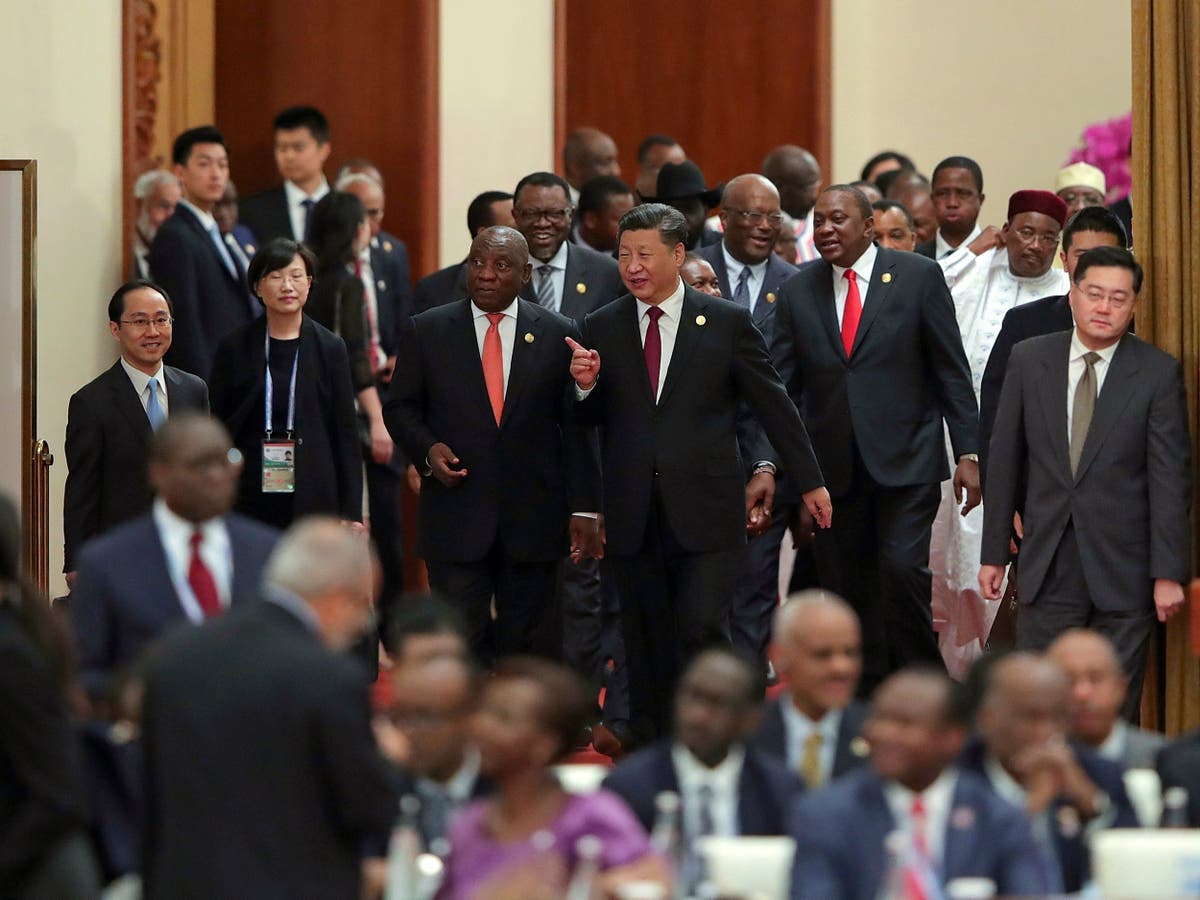Dear Editor, on Thursday, September 5, 2024, Chinese President Xi Jinping delivered a 10-minute keynote address at the opening ceremony of the Forum on China-Africa Cooperation (FOCAC) summit in Beijing, China. In the address entitled; “Joining Hands to Advance Modernization and Build a Community with a Shared Future,” President Xi explained that “the friendship between China and Africa transcends time and space, surmounts mountains and oceans, and passes down through generations,” and pledged China would support African countries’ endeavours in different sectors with approximately $50.70 billion.
Explaining the 24 years of the FOCAC, Xi emphasized that “China has advanced forward hand in hand with our African brothers and sisters in the spirit of sincerity, real results, amity and good faith…” He explained that China and African countries “…stand shoulder to shoulder with each other to firmly defend our legitimate rights and interests as once-in-a-century changes sweep across the world.” This he emphasized is making the two sides “stronger and more resilient together by riding the tide of economic globalization, delivering tangible benefits to billions of ordinary Chinese and Africans.”
Explaining that “modernization is an inalienable right of all countries,” Xi regretted that “the Western approach to it has inflicted immense sufferings on developing countries.” He pledged China will continue working with African countries and support the continent’s development efforts as laid out in the African Union’s Agenda 2063, which he noted will accelerate the Global South’s transformation. Explaining that “China and Africa account for one-third of the world population, Xi observed that “without our modernization, there will be no global modernization.” He thus pledged that “China is ready to deepen cooperation with Africa in industry, agriculture, infrastructure, trade and investment.”
To be specific, President Xi pledged, “In the next three years, China will work with Africa to take the following ten partnership actions for modernizations to deepen China-Africa cooperation and spearhead the Global South modernization.” The ten partnership actions will focus on; Mutual Learning among Civilizations, Trade Prosperity, Industrial Chain Cooperation, Partnership Action for Connectivity, Development Cooperation, Health sector cooperation, and supporting African countries’ Agriculture and Livelihoods. The others are; supporting People-to-People Exchanges, Green Development, and the Partnership Action for Common Security.
When critically analyzed, the ten areas President Xi mentioned that China would work with African areas “deepen China-Africa cooperation and spearhead modernizations,” if implemented, will not only reignite Africa’s economic growth but also drive sustainable development.
For example, President Xi listed Partnership Action for Connectivity; specifically, noting that “China is prepared to carry out 30 infrastructure connectivity projects in Africa, promote together high-quality Belt and Road cooperation, and put in place a China-Africa network featuring land-sea links and coordinated development.” China’s offer to further support Africa’s infrastructural development is a welcome move as the continent is still faced with a shortage of funding in this critical sector. He also mentioned Partnership Action for Green Development stressing that “China is ready to launch 30 clean energy projects in Africa, create a China-Africa forum on peaceful use of nuclear technology…” Put differently, Xi promised to cooperate with the continent on nuclear technology which will tackle a power deficit which has been cited as one of the major challenges delaying Africa’s industrializations efforts. A study by the WB titled “Why we need to close the infrastructure gap in sub-Saharan Africa,” underscores this, stressing that infrastructure funding gaps are hindrances to Africa’s economic take-off. The African Development Bank (ADB) notes that to reduce the continent’s infrastructure funding gaps, Africa needs a of budget $130-$170 billion annually. Therefore, China’s support in such a sector is spot-on.
On the Partnership action for development cooperation, and the partnership action for agriculture and livelihoods, President Xi pledged China’s readiness to “implement 1,000 “small and beautiful” livelihood projects. “China will provide Africa with RMB1 billion yuan (approximately $140 million) in emergency food assistance, build 100,000 projects of standardized agriculture demonstration areas in Africa,” stressed President Xi. These programs if implemented will help the continent in addressing key challenges. It is important to note that China has already been supporting livelihood programs in several African countries, Uganda inclusive. For instance, under the arrangement of the South-South Cooperation (SSC) project between China, Uganda and the Food and Agriculture Organization of the United Nations (FAO), China has injected over 30 million USD is Uganda’s agriculture sector and livelihood programs.
On the Partnership Action for Trade Prosperity, Xi promised to ensure trade between the two sides improves, stressing that “China will voluntarily and unilaterally open its market wider. We have decided to give all LDCs having diplomatic relations with China, including 33 countries in Africa, zero-tariff treatment for 100 per cent tariff lines.” This in many ways will continue to support the continent’s social and economic development. Already, China for the last 15 years has been Africa’s largest trading partner. As of the end of 2023, the trade volume between China and Africa reached 282.1 billion USD.
President Xi further proposed to African leaders that “bilateral relations between China and all African countries having diplomatic ties with China be elevated to the level of strategic relations, and that the overall characterizations of China-Africa relations be elevated to an all-weather China-Africa community with a shared future for the new era.”
In conclusion, looking at China’s record of fulfilling its pledges, there is no doubt Beijing sees African countries as partners and the cooperation between the two is indeed guided by principles of mutual respect, real results and win-win cooperation. Therefore, as President Xi noted, China and Africa should rally their populations together to become a “powerful force” and write a “new chapter in peace, prosperity and progress.” This is a sure way for Africa to realize her development goals.
Dr. Allawi Ssemanda is a Senior Research Fellow at the Development Watch Centre.






